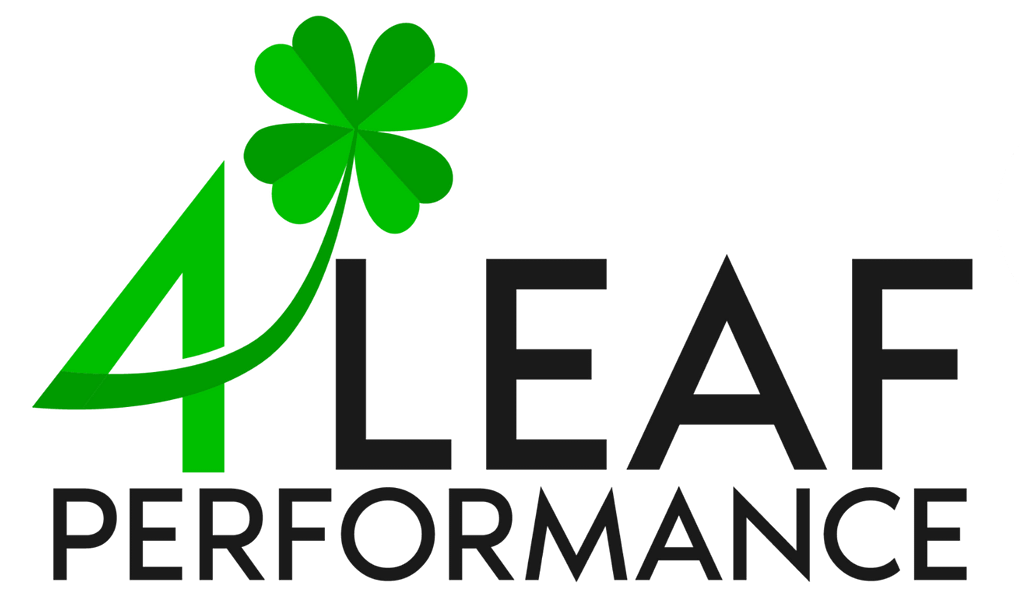You’ve built your business with grit, vision, and long hours—and there’s a story behind every success. But when it comes to business exit planning, buyers aren’t looking for passion. They’re looking for proof.
Most business owners assume that their personal story adds value to the sale. They expect buyers to recognize the effort and commitment it took to build the business. The reality is different. Buyers care about operational stability, clean financials, and systems that will continue to produce results after the owner leaves.
That’s where most business exits fall short. The business may work well under the founder, but if it lacks structure, documented processes, and a reliable team, it won’t survive the transition, let alone attract a strong offer. Exit planning for business owners means preparing a business that can stand independently and not depend on the founder’s presence to function.
The Passion Trap—Why Buyers Don’t Care About Your Founder Story
A founder’s story can create a strong brand and connect with customers, but it often plays a different role in the sales process. Buyers listen to these stories not to be inspired but to assess how objective the owner is about the business and whether emotion might interfere with the deal.
Overemphasizing your personal connection to the business can raise quiet concerns for buyers. It can signal a founder who may struggle to let go, resist changes after the sale, or delay decisions that affect the team or operations. Buyers may also question whether personal pride has gotten in the way of making tough, strategic choices over the years.
In many cases, founders bring emotion into early deal conversations without realizing how it’s being received. Statements like “This business is my life’s work” or “I just want someone who will care about it like I do” may seem honest, but they subtly shift focus away from business fundamentals and toward personal attachment—something most buyers aren’t looking to inherit.
That doesn’t mean you should hide your story. It means you need to know where and how to use it. Buyers want facts, clarity, and thoughtful answers to their questions. If your story overshadows those things, it becomes noise, not value.

Transferable Value—What Actually Makes a Business Sellable
Most business owners assume that if their business provides a healthy income, it must be valuable to someone else. That’s not always the case. In business exit planning, the key question is: Can this business continue to succeed without you? If the answer is no, it likely won’t sell or will sell at a steep discount.
Buyers look for transferable value, which refers to a business’s ability to maintain its performance under new ownership. If all the value depends on the current owner’s relationships, knowledge, or day-to-day involvement, buyers will see risk, not opportunity.
A business with strong transferable value has clear processes, reliable team members, and systems that don’t rely on one person to keep things moving. It can deliver consistent results regardless of who’s in charge, which makes it attractive to buyers.
Many business exits fall apart because owners wait too long to consider transferability. They start the process when they’re emotionally ready to step away, only to realize that the business can’t function without them. At that point, fixing the problem can take months or even years, and most owners don’t want to stick around to do the work.
If your goal is to build a strong business exit strategy, transferability needs to be part of your planning early on. Create a business that someone else actually wants to step into.
Value Drivers That Make Buyers Say Yes
In business exit planning, serious buyers evaluate standard value drivers. These elements make a business not only sellable but desirable. They form the basis of how buyers calculate risk, decide what they’re willing to pay, and determine whether they’re interested at all.
Here’s what buyers actually look for:
The Business Is Not Reliant on the Owner
A business that relies on the founder to manage operations, close deals, or make key decisions is a red flag. Buyers don’t want to inherit a role—they want to acquire a company that operates without them stepping in immediately. If the business can’t function without you, its value to a new owner drops significantly.
A Strong Management Team Is in Place
Buyers want to see capable leadership beyond the founder. A reliable management team gives confidence that the business can sustain operations and performance after the transition. This also shortens the time you’ll be needed during any post-sale transition.
Low Customer and Vendor Concentration
Revenue tied too heavily to one or two customers creates risk. If a single client accounts for 30% of your revenue and walks away, the business becomes unstable. The same goes for vendors. Buyers prefer a diversified base that protects the business from single-point failures.
Clean, Consistent Financial Records
Trustworthy financials are non-negotiable. Buyers want well-organized books, transparent reporting, and consistent documentation over multiple years. Sloppy or incomplete financials slow down the process and raise doubts.
Margins and Cash Flow Exceed Industry Averages
Buyers compare your financial performance against others in your space. If your margins, EBITDA, or cash flow are below average, it’s a warning sign. Strong performance gives buyers confidence in your operational discipline—and justifies a higher valuation.
Processes and Systems Are Well Documented
Without clear processes, your business looks like a black box. Buyers want to see how things get done, who does what, and what tools or systems are in place. Documentation makes your business repeatable and easier to transition.
Sales and Marketing Are Not Dependent on the Owner
Buyers will hesitate if you’re the one closing all the deals or driving growth through your personal network. They want to see that customer acquisition and revenue generation are part of a broader, repeatable system, not a personality.
Revenue Is Recurring or Predictable
Predictable income means lower risk. Businesses with subscription models, service contracts, or long-term client relationships have more value than those with inconsistent or one-time transactions.
Clear Scalability and Growth Potential
Buyers want a business that has room to grow. That might mean untapped markets, room to expand offerings, or systems already in place that can support increased volume. Scalability without massive reinvestment is a major selling point.

When Your Story Does Matter (But It’s Never Enough)
Your story still has a place—it just isn’t the foundation of your business exit strategy. Buyers may appreciate how you built the company, why you started it, or the values that shaped your team. But that interest doesn’t replace their need for clean financials, a strong management structure, or a scalable model.
Your story can support the deal in some cases, particularly with mission-driven or strategic buyers. It might align with their values or long-term goals. But even then, it’s only part of the equation. They’ll still examine the fundamentals to assess whether the business can function without you.
A strong narrative might help differentiate your business from others, especially in industries where values, culture, or customer loyalty matter. It may even help build rapport during negotiation.
If you want your story to be influential, use it strategically. It should enhance, not justify, the business’s value. Make sure the numbers back up the message. Your story can be a differentiator, but only after the buyer is satisfied with everything else.
How to Start Business Exit Planning Today
You don’t have to be ready to sell to start planning for a sale. In fact, the best time to begin is when you’re not in a rush. Business exit planning works best when there’s time to assess what’s working, fix what isn’t, and build toward a structure buyers actually want.
Here are practical steps business owners can take now to improve both value and optionality:
Get a Business Valuation
A valuation gives you a baseline. It shows what your business is worth today and highlights what’s driving or limiting that value. You’ll gain clarity on where to focus your time and resources.
Bring in a CFO (Even Fractionally)
Many businesses don’t need a full-time CFO, but they do need financial clarity. A fractional CFO or experienced CPA can help clean up reporting, identify inefficiencies, and prepare the financial documentation buyers expect during due diligence.
Take a Real Vacation
Use time away as a test. If you can’t leave your business for more than a few days without disruption, it’s too dependent on you. The longer your team can run operations without your involvement, the more transferable your business becomes.
Benchmark Financial Performance
Compare your margins, revenue, and expense ratios against industry standards. Buyers do this as part of their process—you should too. If you’re underperforming, focus on improvements that can be made before you go to market.
Review Your Marketing and Digital Presence
First impressions matter. Buyers will search your business online and compare it to competitors. If your website, social proof, or messaging is outdated, address it now. A strong presence builds confidence that your brand can compete.
Build a Sales Team
Start training or hiring others to handle lead generation, client relationships, and sales processes. Buyers want a sales system that doesn’t rely on the owner.
Document Processes and Systems
Think of your business like a franchise model. Every key activity should have a standard process behind it. You’ll need to document more thoroughly if someone new can’t step in and know what to do. This step also makes onboarding future team members easier.
Talk to a Business Broker Early
You don’t need to list your business tomorrow—but a broker or M&A advisor can help assess where you stand. They’ll offer objective input on what buyers are looking for and guide your timeline. This gives you a clearer path—and avoids surprises later on.

Want to Sell Someday? Start Business Exit Planning Now
Building a sellable business has nothing to do with how passionate you are—and everything to do with how well your business runs without you. Buyers aren’t paying for effort, history, or intent. They’re evaluating systems, leadership, financials, and risk.
A strong business exit strategy doesn’t start when you’re ready to walk away. It starts when you decide to build something transferable, scalable, and valuable in someone else’s eyes. Whether you plan to sell in a year or want to improve how your business runs today, the proper planning makes all the difference.
At 4 Leaf Performance, we help business owners build companies that are actually worth buying. If you’re serious about making your business more valuable—and more enjoyable to own—our small business coaching services are here to support you every step of the way.
Let’s talk about how to strengthen your business for whatever comes next.



